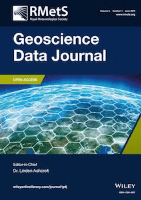
Geoscience Data Journal
Scope & Guideline
Driving forward the conversation on Earth's future with data.
Introduction
Aims and Scopes
- Data Rescue and Preservation:
A core aim of the journal is to promote the rescue and preservation of historical geoscience data, including weather records, sea level measurements, and geological observations, ensuring that valuable information is not lost. - Open Data Initiatives:
The journal supports open data initiatives by publishing datasets that are freely accessible to researchers and the public, encouraging collaborative research and transparency in scientific methodologies. - Interdisciplinary Data Integration:
A consistent focus is placed on integrating datasets from various geoscience disciplines, facilitating multidisciplinary research that can address complex environmental challenges. - High-Resolution and Global Datasets:
The journal frequently publishes high-resolution datasets and global compilations that provide detailed insights into specific geophysical phenomena, climate patterns, and environmental changes. - Methodological Innovation in Data Collection:
There is an emphasis on innovative methodologies for data collection, including remote sensing, citizen science, and advanced computational techniques, which enhance the quality and applicability of geoscience data.
Trending and Emerging
- Climate Change and Environmental Monitoring:
There is a marked increase in datasets related to climate change impacts, monitoring environmental changes, and adaptation strategies, reflecting the urgent need for data-driven insights into climate-related issues. - Automation and Advanced Data Processing Techniques:
The emergence of automation in data collection and processing techniques is gaining traction, with papers focusing on automated systems for data rescue and analysis, reflecting advancements in technology. - Citizen Science Contributions:
The involvement of citizen scientists in data collection and the publication of datasets generated through these efforts is on the rise, highlighting the growing recognition of community engagement in scientific research. - Integration of Big Data and AI:
There is an increasing trend towards utilizing big data analytics and artificial intelligence in geoscience research, with datasets that leverage these technologies for improved analysis and interpretation. - Interdisciplinary Collaborations:
Emerging themes indicate a stronger emphasis on interdisciplinary collaborations that combine geoscience with fields such as social sciences, health, and urban planning to address complex global challenges.
Declining or Waning
- Historical Geophysical Observations:
Although historical data remains important, the frequency of publications focused solely on historical geophysical observations appears to be decreasing, as researchers shift towards contemporary data collection and analysis methods. - Regional Focused Datasets:
There is a decline in the publication of datasets that are narrowly focused on specific regional studies, as the journal increasingly emphasizes global datasets that can provide broader insights across multiple regions. - Traditional Geological Surveys:
The emphasis on traditional geological survey datasets is waning, with a growing preference for innovative and technology-driven data collection methods, such as remote sensing and machine learning.
Similar Journals
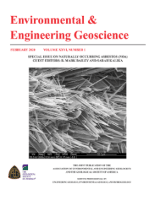
ENVIRONMENTAL & ENGINEERING GEOSCIENCE
Bridging Knowledge Gaps in Environmental and Engineering GeoscienceENVIRONMENTAL & ENGINEERING GEOSCIENCE, published by the Geological Society of America, Inc, is an esteemed peer-reviewed journal duly established to advance the fields of geotechnical engineering, environmental engineering, and broader earth sciences. With an ISSN of 1078-7275 and an E-ISSN of 1558-9161, this journal disseminates high-quality research and innovative methodologies that address pressing environmental issues and engineering challenges. As of 2023, it is classified in the Q3 category across various disciplines within earth and planetary sciences, highlighting its contribution and relevance within the academic community. The journal boasts an impactful trajectory, converging research from 1995 to 2024, and is strategically positioned to facilitate the exchange of ideas among researchers, practitioners, and students alike. With a commitment to fostering an understanding of geosciences in relation to environmental engineering, this journal is a valuable resource for those dedicated to developing sustainable solutions in our ever-evolving landscape. Readers can access published works through institutional libraries or relevant academic platforms, ensuring that groundbreaking research reaches all corners of the discipline.

Journal of Integrative Bioinformatics
Exploring Integrative Methodologies in Medicine and BeyondJournal of Integrative Bioinformatics, published by WALTER DE GRUYTER GMBH, is a leading open-access journal that has been at the forefront of the field since its inception in 2004. With an E-ISSN of 1613-4516, it serves as a crucial platform for researchers engaged in the interdisciplinary study of bioinformatics, blending insights from biology, computer science, and mathematics. Based in Germany, the journal is recognized for its impact in the realm of general medicine, boasting a Scopus rank of #172 out of 636 and placing in the 73rd percentile of its category. The journal continuously strives to disseminate high-quality research contributions that unify experimental and computational approaches to address complex biomedical questions. Targeted towards academics, professionals, and students alike, the Journal of Integrative Bioinformatics provides essential access to innovative research that enhances our understanding of integrative methodologies in medicine and beyond, especially with converged years spanning from 2008 to 2024.
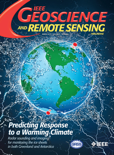
IEEE Geoscience and Remote Sensing Magazine
Unveiling Earth's Secrets Through Cutting-Edge TechnologyIEEE Geoscience and Remote Sensing Magazine, published by the esteemed IEEE-Institute of Electrical and Electronics Engineers Inc, serves as a pivotal platform for cutting-edge research in the realms of geoscience, remote sensing, and related disciplines. With an ISSN of 2473-2397 and E-ISSN of 2168-6831, this prestigious magazine has established itself as a leading resource in its field, achieving a Q1 ranking across multiple categories including Computer Science, Earth and Planetary Sciences, and Electrical and Electronic Engineering. Researchers will appreciate its high impact, recognized by impressive Scopus rankings—2nd in Physics and Astronomy, 3rd in Earth Sciences, and 7th in General Computer Science, placing it firmly in the top percentiles globally. Published bimonthly and compatible with various access options, the magazine aims to disseminate innovative solutions and technological advancements, fostering collaboration and knowledge-sharing among professionals, students, and industry stakeholders. As it converges its contributions from 2013 to 2024, IEEE Geoscience and Remote Sensing Magazine continues to significantly influence the scientific community's understanding of the planet and its systems.

International Journal of Applied Earth Observation and Geoinformation
Empowering Research through Earth Observation Excellence.International Journal of Applied Earth Observation and Geoinformation is a premier peer-reviewed journal published by Elsevier, focusing on the integration and application of earth observation and geoinformation technologies across diverse fields. With an open access model established in 2020, this journal enhances accessibility and dissemination of research crucial for addressing global challenges related to climate change, resource management, and sustainable development. The journal occupies a notable position within the academic community, featuring a Q1 ranking in multiple categories including Computers in Earth Sciences, Earth-Surface Processes, and Global and Planetary Change, reflecting its significant impact and relevance in these disciplines. It is recognized for its high-quality articles that explore innovative methodologies and applications, making it an essential resource for researchers, practitioners, and students alike who seek to advance their understanding of earth dynamics and geospatial technology. The journal is indexed in Scopus with impressive rankings that underscore its high citation impact and scholarly influence, with an emphasis on providing a platform for the latest findings in management, monitoring, and policy in environmental science.

Boletim de Ciencias Geodesicas
Fostering Knowledge and Innovation in Geodetic ResearchBoletim de Ciências Geodésicas is an esteemed academic journal published by the Universidade Federal do Paraná within its Centro Politécnico. Focused on the dynamic field of Earth and Planetary Sciences, this Open Access journal has been a pivotal resource since 1997, fostering the dissemination of critical research and innovative methodologies. With an impact factor indicative of its relevance in the discipline, Boletim de Ciências Geodésicas ranks in the Q3 quartile for Earth and Planetary Sciences as of 2023, showcasing its commitment to quality scholarship in a competitive field. Researchers and students alike will benefit from access to cutting-edge findings, given its broad scope that encompasses various aspects of geodesy and related sciences. The journal's convergence of research from 2005 to 2024 ensures that it remains at the forefront of emerging trends and fundamental developments in the discipline, further enhancing its esteemed reputation in the academic community.

International Journal of Research & Method in Education
Advancing educational excellence through innovative research methods.The International Journal of Research & Method in Education, published by Routledge Journals, Taylor & Francis Ltd, stands at the forefront of educational research, providing a platform for innovative methodologies and critical discussions within the field. As reflected in its prestigious Q1 category ranking in education for 2023 and its impressive Scopus rank of 301 out of 1543, the journal is recognized for its influential contributions to educational theory and practice. With a focus on rigorously assessing research methods and promoting evidence-based learning, this journal addresses a wide array of topics relevant to researchers, educators, and policymakers. Although it does not currently offer open access options, its extensive reach and robust peer review process ensure that published articles reflect the highest standards of scholarship. Researchers and professionals alike will find invaluable insights that advance understanding and application in the ever-evolving landscape of education.

Methods Data Analyses
Connecting Researchers with Cutting-Edge MethodologiesMethods Data Analyses is a premier open-access journal published by GESIS Leibniz Institute for the Social Sciences, based in Germany. With its focus on advanced methodologies within various fields such as Applied Mathematics, Applied Psychology, Computer Science Applications, and Statistics, this journal plays a pivotal role in disseminating innovative research and practical applications that push the boundaries of quantitative analysis. As of 2023, it proudly holds Q1 status in both Applied Mathematics and Modeling and Simulation, reflecting its high impact and relevance in these disciplines. The journal is committed to promoting open access research since 2013, ensuring that critical methodologies and findings are available to a global audience. With Scopus rankings indicating robust standing across multiple categories, including Statistics and Decision Sciences, Methods Data Analyses stands as an essential resource for researchers, professionals, and students seeking to engage with cutting-edge approaches and frameworks that enhance analytical rigor in their work.
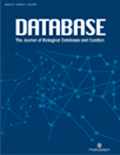
Database-The Journal of Biological Databases and Curation
Navigating the Complexities of Biological Data with ExpertiseDatabase - The Journal of Biological Databases and Curation, published by Oxford University Press, stands at the forefront of the rapidly evolving fields of biological data management and curation. Since its inception in 2009, this open access journal has become a pivotal resource for researchers and professionals eager to explore the intricate world of biological databases. With an impressive impact factor, it ranks in the Q1 quartile across significant disciplines such as Agricultural and Biological Sciences, Biochemistry, Genetics and Molecular Biology, Information Systems, and Medicine as of 2023. This prestigious standing reflects its commitment to high-quality research and innovation. The journal not only provides a platform for original research articles, reviews, and case studies but also aims to facilitate discussion on best practices in database design and curation. By bridging the gap between data generation and utilization, it plays an essential role in enhancing the accessibility and usability of biological data, making it indispensable for scholars and students who are navigating these complex domains.
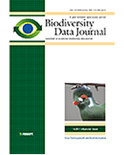
Biodiversity Data Journal
Bridging gaps in biodiversity research with accessible knowledge.Biodiversity Data Journal, published by PENSOFT PUBLISHERS, is a leading open-access platform that has been facilitating the dissemination of scientific knowledge since its inception in 2013. With a focus on enriching the fields of Agricultural and Biological Sciences, Animal Science and Zoology, Ecology, and Plant Science, this journal plays a pivotal role in promoting research outputs related to biodiversity, encompassing ecological data, species inventories, and conservation strategies. It has achieved commendable rankings in various categories, notably securing a Q2 rating in several key areas, indicating its growing influence within the academic community. The journal’s contribution to advancing the understanding of biodiversity is further enhanced by its commitment to open access, ensuring that vital research findings are widely accessible to researchers, professionals, and students worldwide. By publishing comprehensive datasets and innovative research, the Biodiversity Data Journal remains an essential resource for those looking to stay at the forefront of biodiversity science and environmental stewardship.
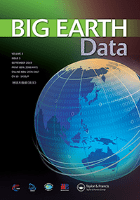
Big Earth Data
Pioneering Research at the Intersection of Earth and ComputingBig Earth Data is a prestigious open-access journal that has been at the forefront of advancing research in the intersection of earth science and computer technology since its inception in 2017. Published by TAYLOR & FRANCIS LTD in the United Kingdom, this journal is dedicated to disseminating groundbreaking findings and innovative methodologies in the fields of Earth and Planetary Sciences and Computer Science Applications. With a commendable impact factor and an impressive positioning in the Scopus rankings—claiming Q1 status in Computers in Earth Sciences and Q2 in Computer Science Applications—it serves as a vital resource for researchers, professionals, and students alike. The journal encourages submissions that explore the integration of big data technologies in managing, analyzing, and visualizing earth-related data, thereby fostering interdisciplinary collaboration. Since embracing its open-access model, Big Earth Data has enhanced the accessibility of high-quality research, promoting a broader dialogue in the scientific community and contributing to informed decision-making in global environmental challenges.